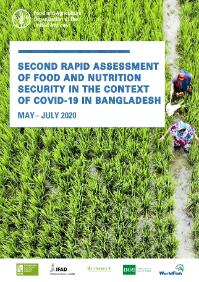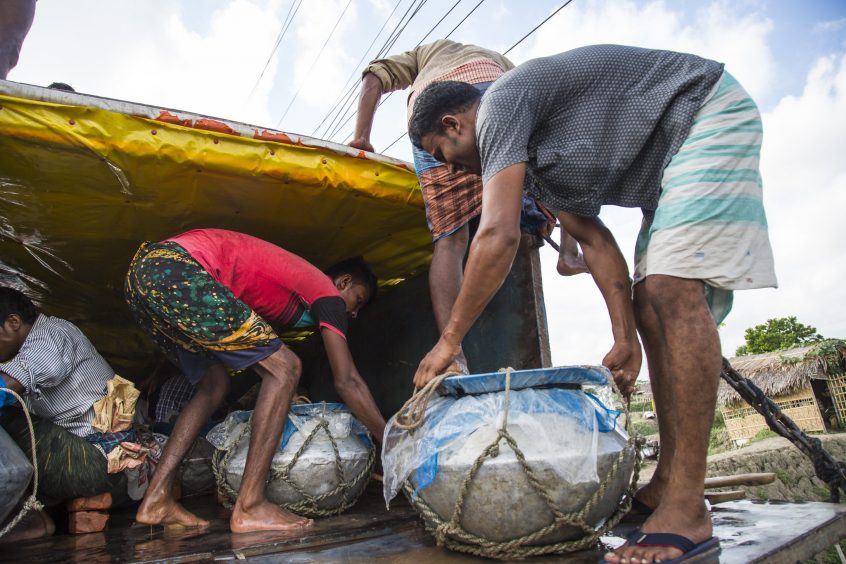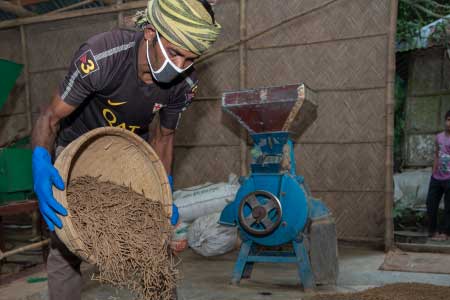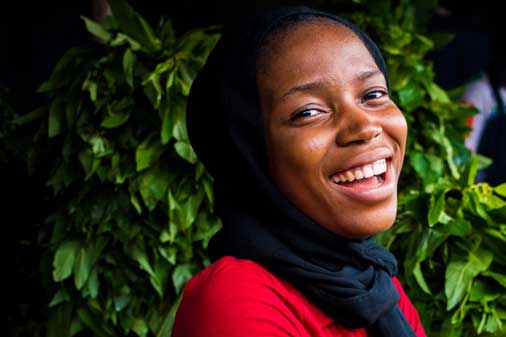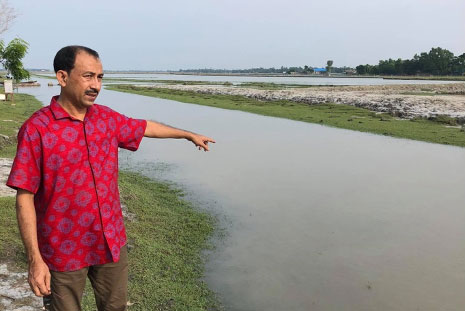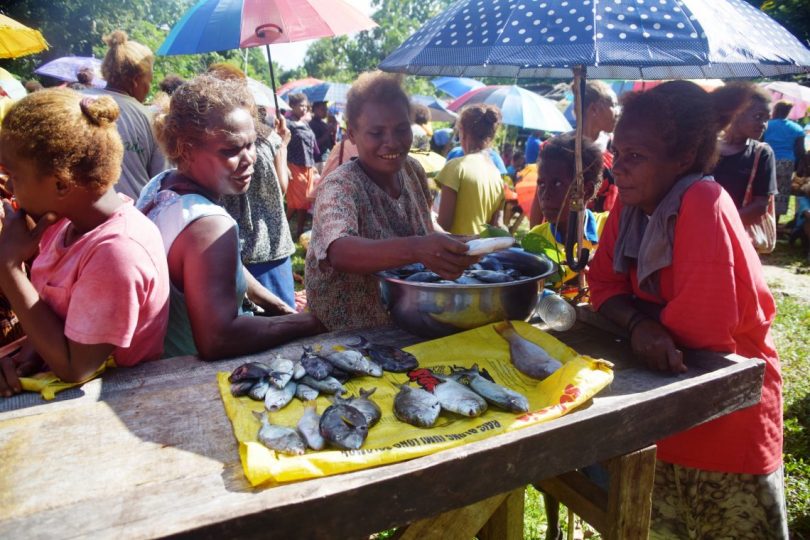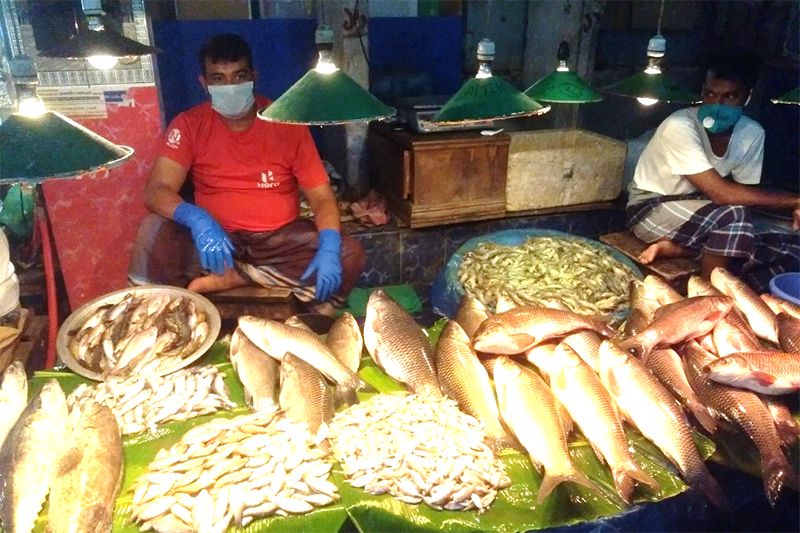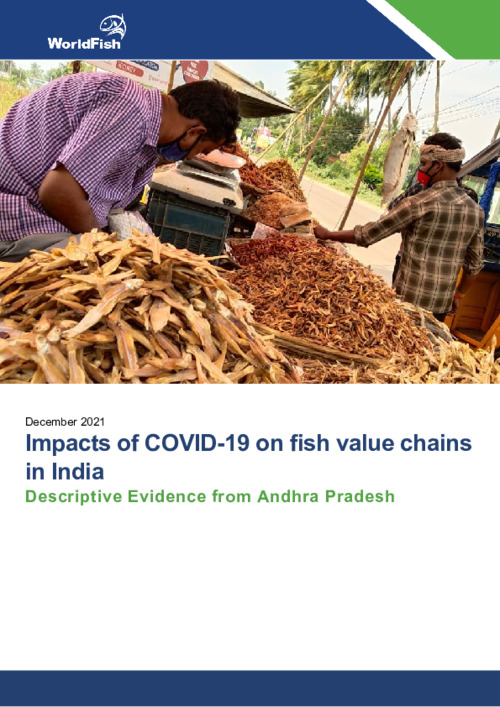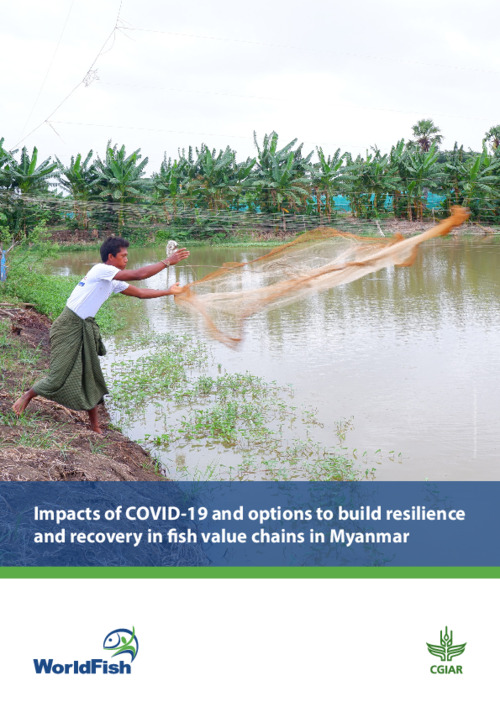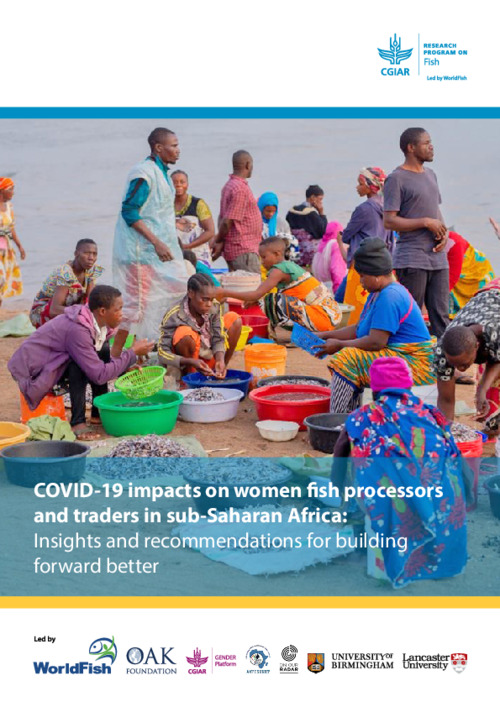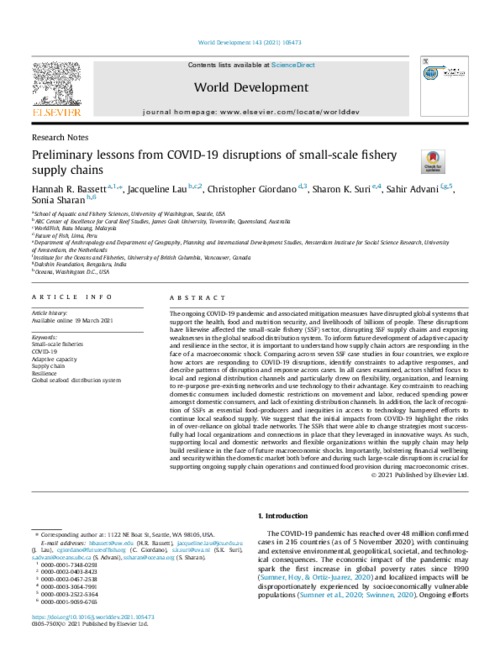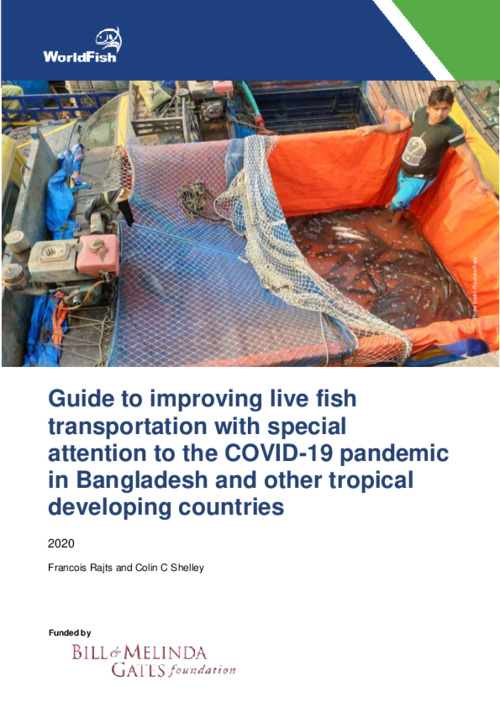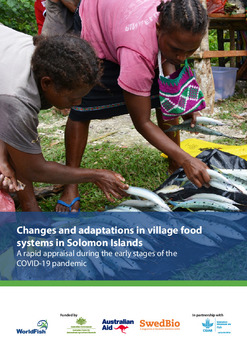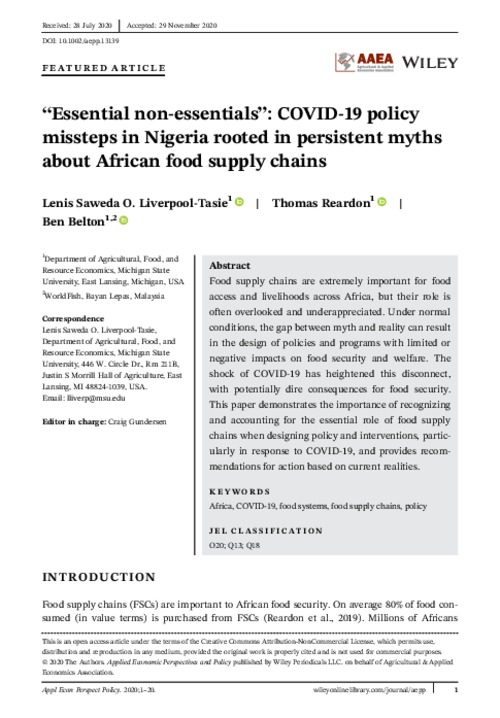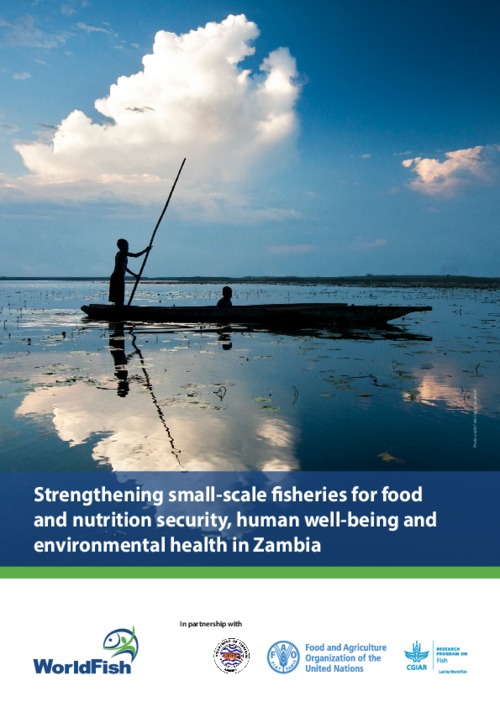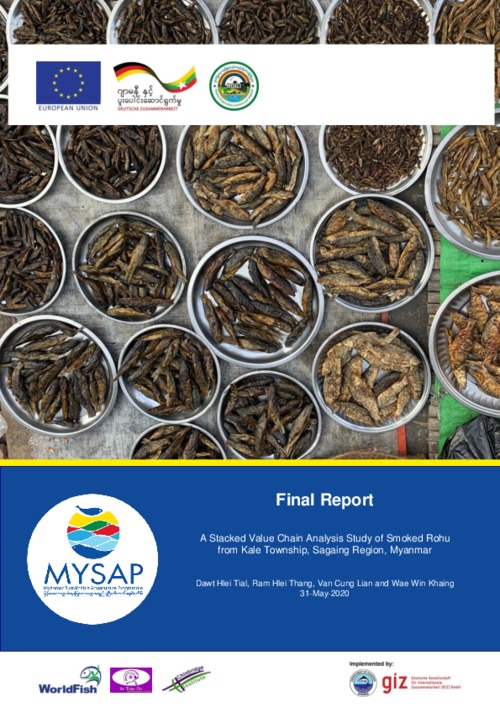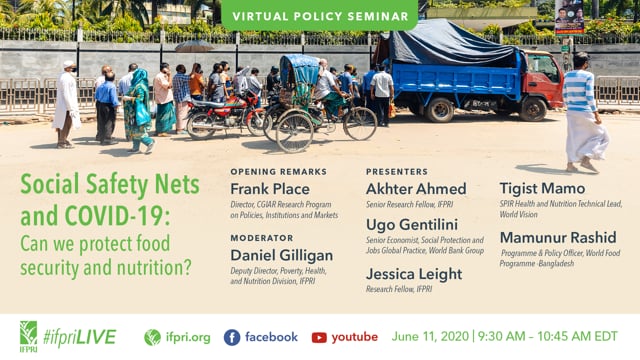CGIAR Research Program on Fish Agri-food systems
WorldFish is curating a series of resources analyzing the impacts of and responses to the COVID-19 pandemic in aquatic food systems related to food and nutrition security, poverty, and development.
The COVID-19 pandemic and subsequent lockdowns are creating health and economic crises, leading to an increased incidence of poverty and a looming food crisis. The food system has been seriously disrupted, with impacts occurring at multiple levels and across supply chains.
For hundreds of millions of people, aquatic foods are an integral part of their livelihood, food and nutrition security, and culture. Part of these populations are women, migrant workers, and a large informal sector that may not see direct aid from governments or financial institutions.
WorldFish and partners are identifying vulnerabilities within aquatic food systems and opportunities for governments, international bodies, industries, small-scale actors, and civil society to respond, adapt, and build resilience.
This page is updated regularly with links to blogs, publications, policy briefs, events, and other resources featuring WorldFish analysis on COVID-19, including specific regional and country impacts.
WorldFish is curating a series of resources analyzing the impacts of and responses to the COVID-19 pandemic in aquatic food systems related to food and nutrition security, poverty, and development.
The COVID-19 pandemic and subsequent lockdowns are creating health and economic crises, leading to an increased incidence of poverty and a looming food crisis. The food system has been seriously disrupted, with impacts occurring at multiple levels and across supply chains.
For hundreds of millions of people, aquatic foods are an integral part of their livelihood, food and nutrition security, and culture. Part of these populations are women, migrant workers, and a large informal sector that may not see direct aid from governments or financial institutions.
WorldFish and partners are identifying vulnerabilities within aquatic food systems and opportunities for governments, international bodies, industries, small-scale actors, and civil society to respond, adapt, and build resilience.
This page is updated regularly with links to blogs, publications, policy briefs, events, and other resources featuring WorldFish analysis on COVID-19, including specific regional and country impacts.
News and updates
COVID-19 impacts on the Bangladesh finfish aquaculture value-chain, and recommended coping strategies
Jul , 2021
Read MoreCOVID-19 impact on aquatic food systems reveals insights for future resilience
Jun , 2021
Read More
Low-cost technology boosts women’s livelihoods amidst pandemic in Bangladesh
Mar , 2021
Read More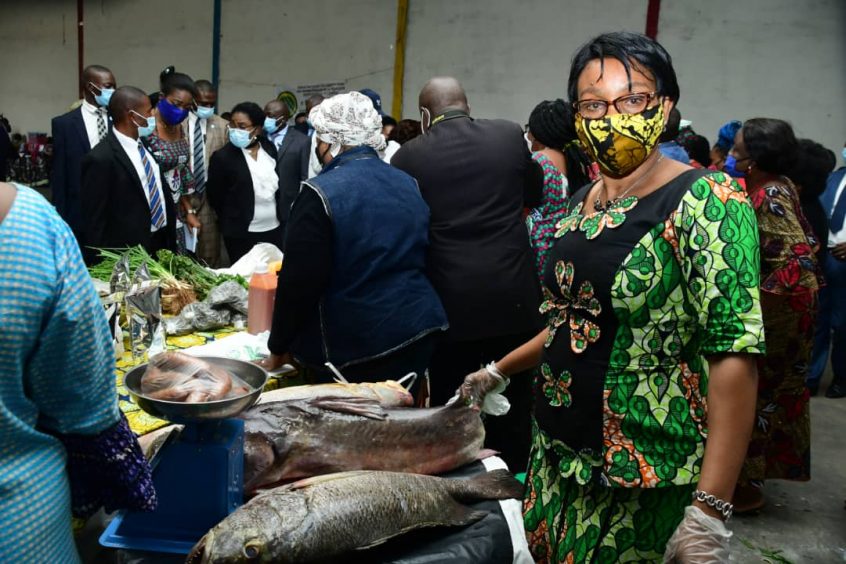
African women join forces to overcome COVID-19 challenges in aquatic food systems
Mar, 2021
Read More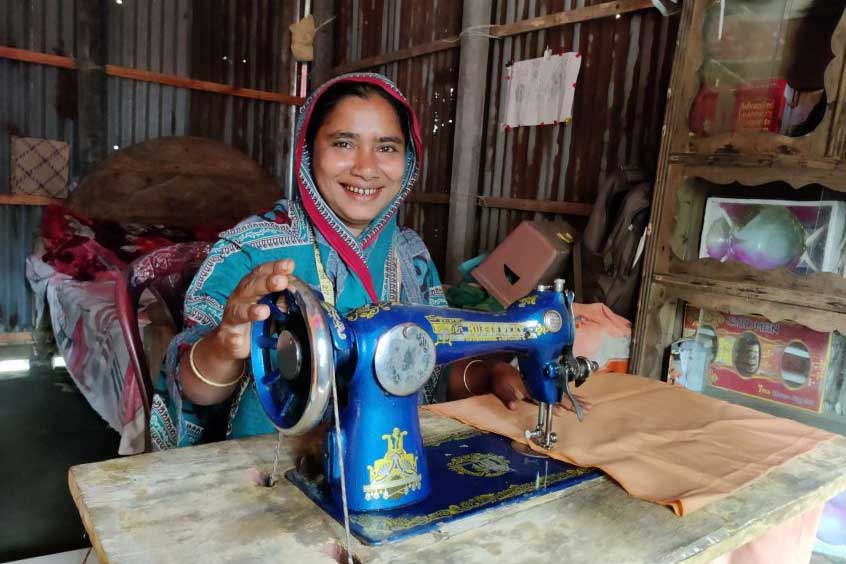
Savings groups support women’s financial independence during COVID-19 in Bangladesh
Mar, 2021
Read More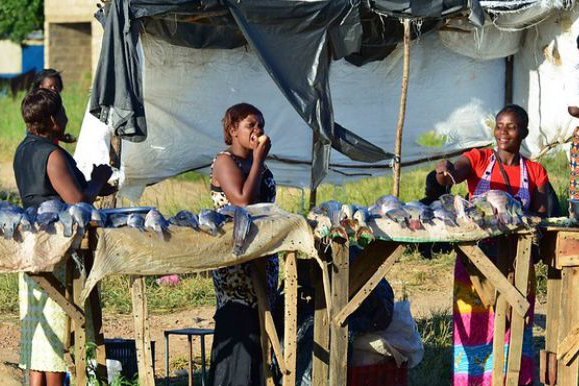
Early COVID-19 responses in the seafood sector offer crucial lessons for dealing with future shocks in food systems
Feb, 2021
Read More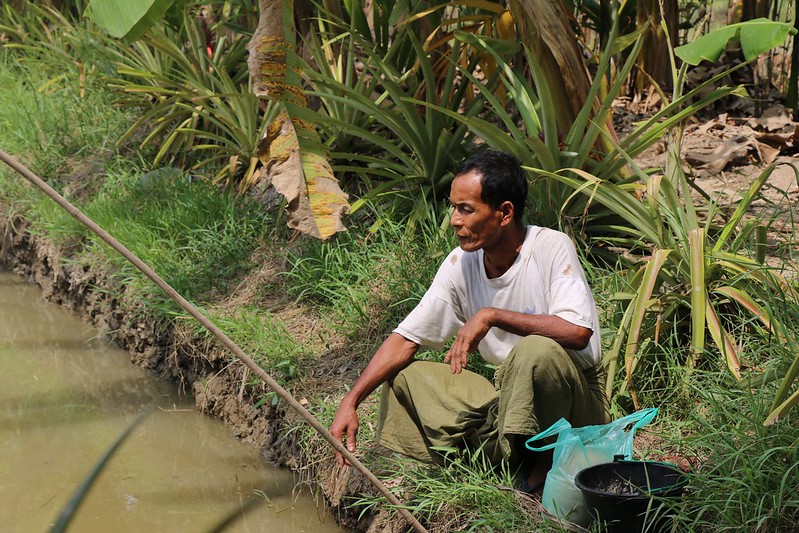
Mobile app connects fish farmers with aquaculture information despite COVID-19 in Myanmar
Dec, 2020
Read More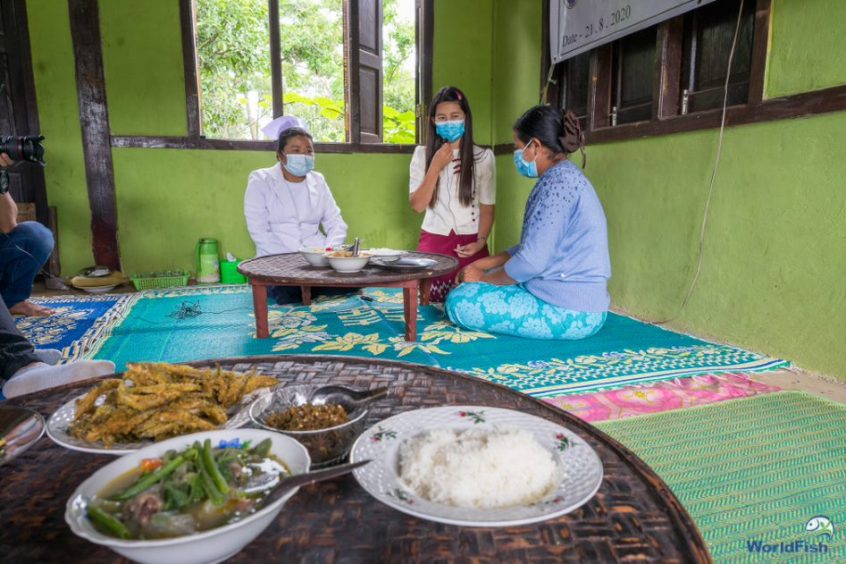
Effective research during COVID-19 and other food system shocks: Here’s 10 tips
Oct, 2020
Read More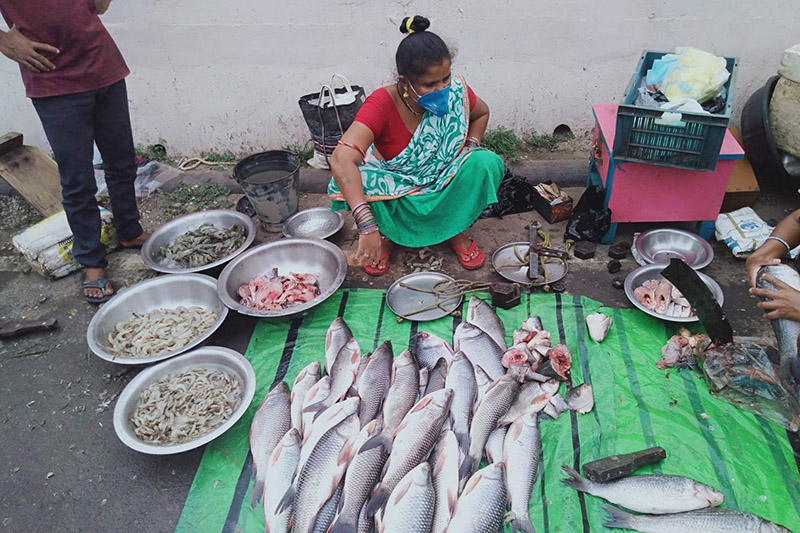
The importance of sex-disaggregated data and the need to be gender responsive in response to COVID-19’s impact on the fisheries and aquaculture sector
Sep, 2020
Read More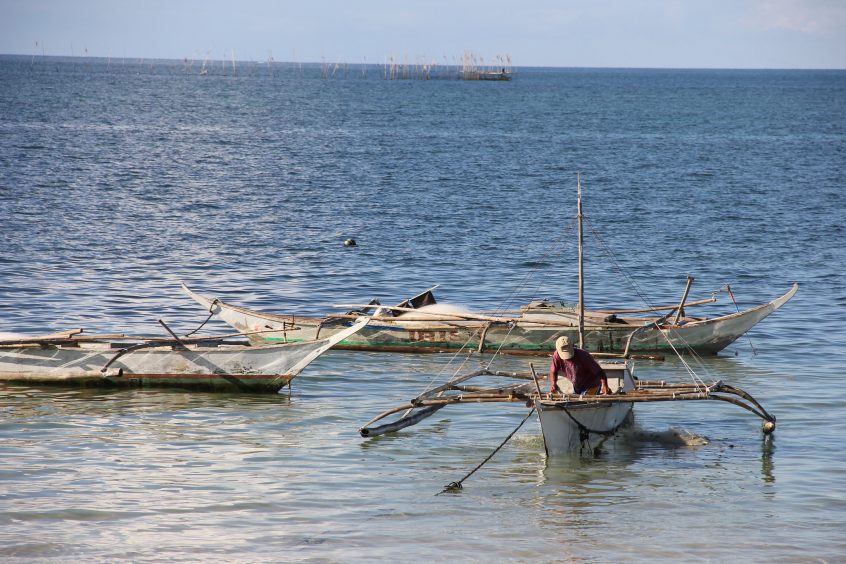
Resilient, inclusive aquatic foods systems key to tackling climate change and COVID-19, say researchers
Sep, 2020
Read More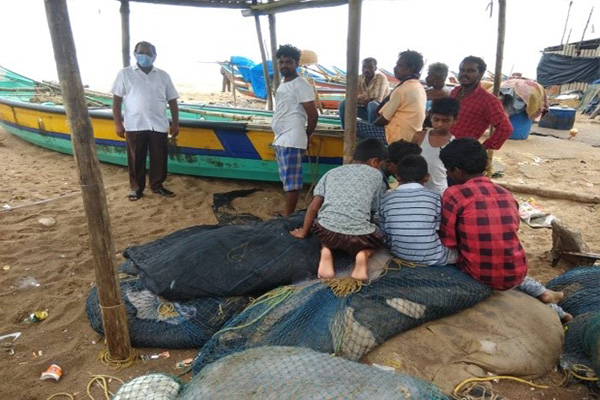
Field Notes: Call for government support as lockdown bites into fish processors’ profits in India
July, 2020
Read More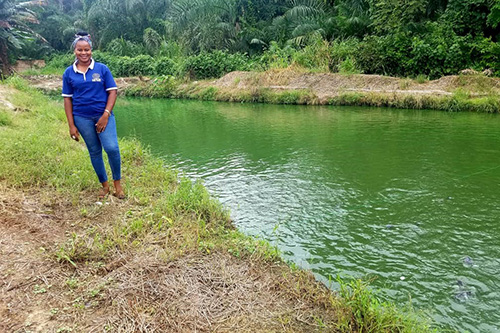
Field Notes: Nigeria’s fish processors call for government support to stay afloat during COVID-19 crisis
July, 2020
Read More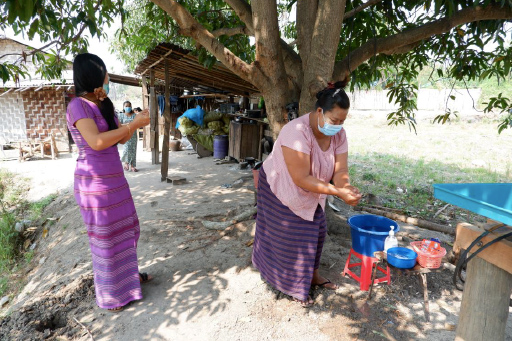
MYSAP Inland supports small-scale fish farmers and fish processors during COVID-19
June, 2020
Read More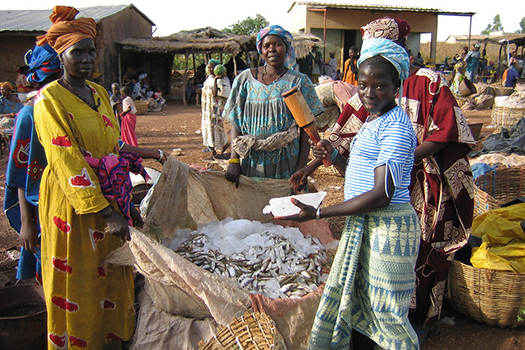
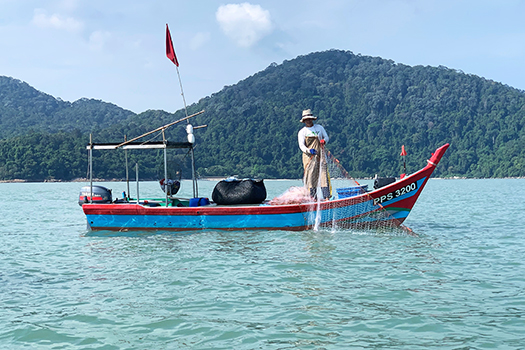
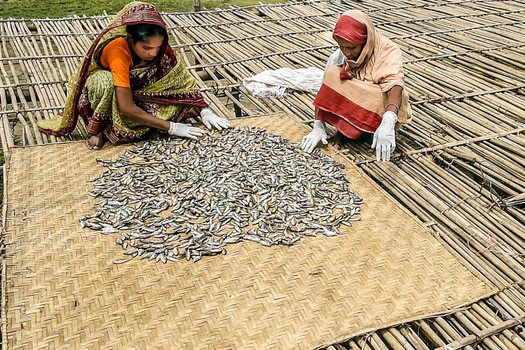
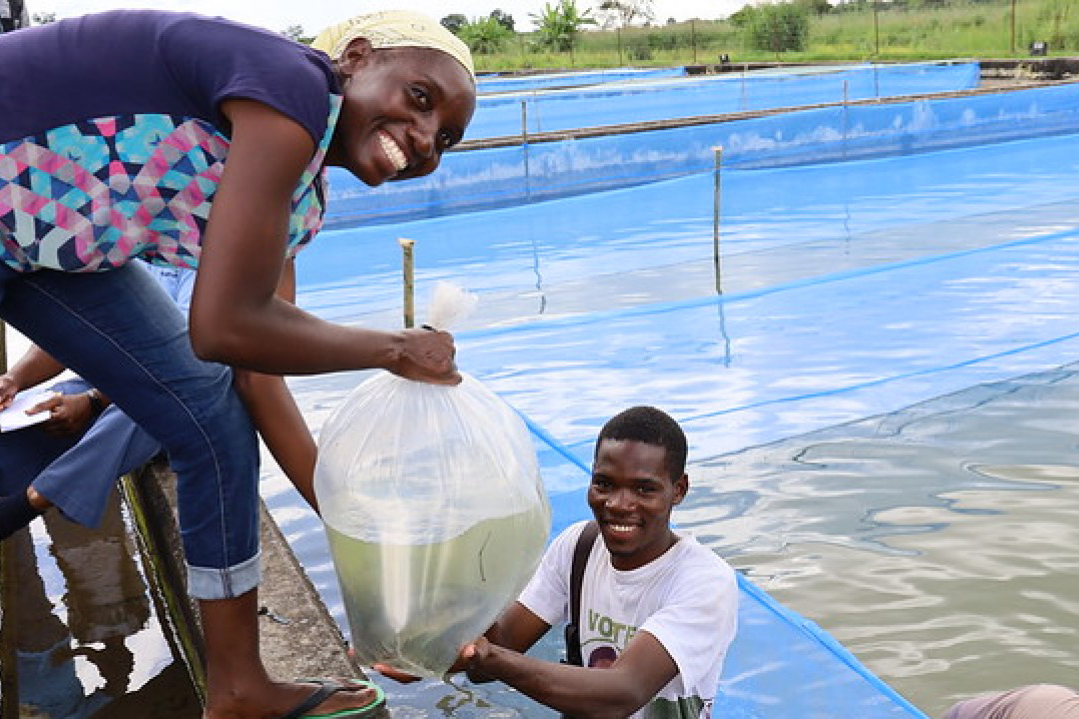
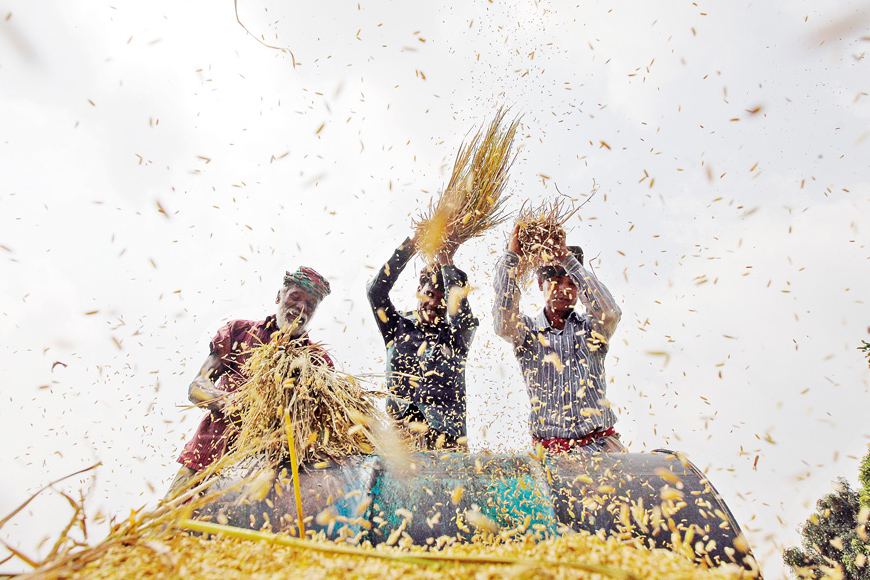
IFPRI, IRRI, CIMMYT, WorldFish make joint call for measures to avert risk to food system
May, 2020
Read More
Addressing COVID-19 impacts on fish and aquatic food systems
WorldFish and partners join forces in research response
April, 2020
Read More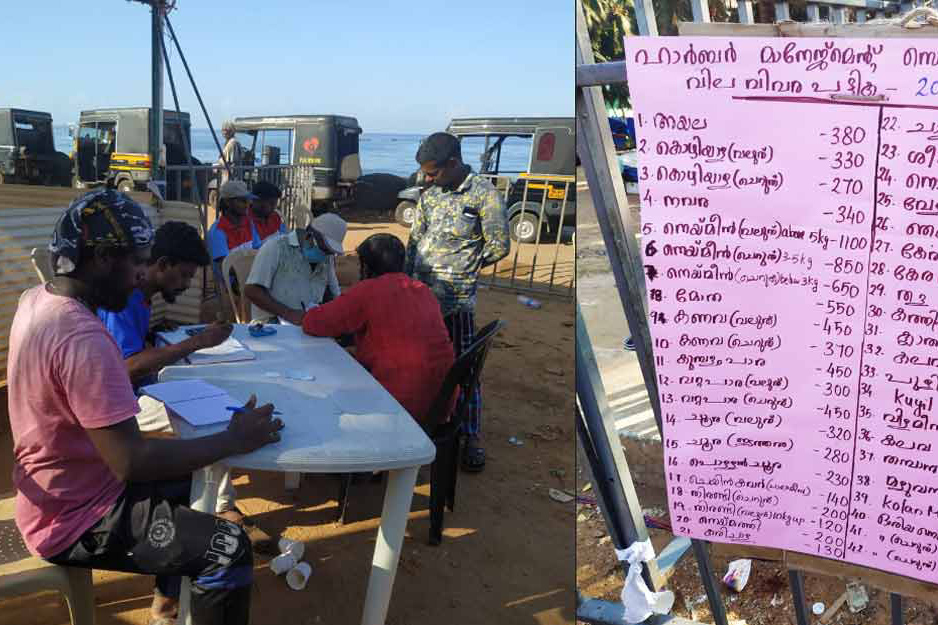
How small fishers in Kerala's Poonthura benefited from COVID time auction system
April, 2020
Read More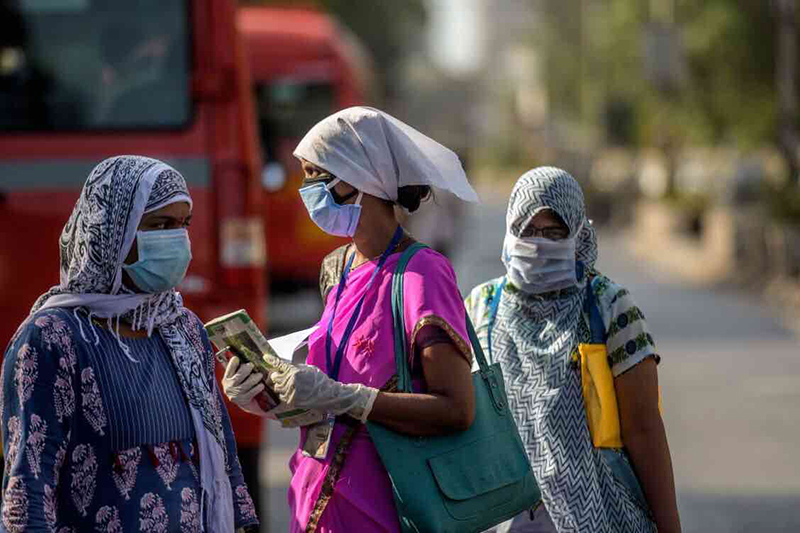
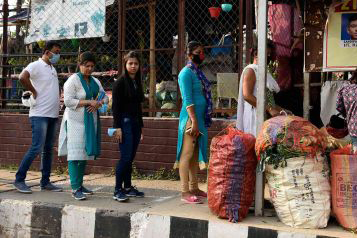

Coronavirus should drive Kerala to adopt sustainable marine fishing practices
March, 2020
Read MorePublications and policy briefs
Responding to COVID-19 and its impact on aquatic food systems
Featured publications
Science Direct Global Food Security. Volume 29, June 2021, 100526
Second rapid assessment of food and nutrition security in the context of COVID-19 in Bangladesh
FAO. 2020. Second rapid assessment of food and nutrition security in the context of COVID-19 in Bangladesh: May – July 2020. Dhaka.
Summary Of The Impacts Of The Covid-19 Pandemic On The Fisheries And Aquaculture Sector
Addendum to the state of world fisheriesand aquaculture 2020 summary of the impacts of the covid-19 pandemic on the fisheries and aquaculture sector
FAO Policy briefs
The COVID-19 pandemic is impacting not only food trade, food supply chains and markets but also people’s lives, livelihoods and nutrition. This collection of policy briefs presents a qualitative and quantitative assessment of the pandemic’s impacts on these areas.
Mitigating the effects of the COVID-19 pandemic on food and nutrition of school children
WFP, FAO, WHO (April 2020) Mitigating the effects of COVID-19 on food and nutrition of school children. Interim Guidance Note. pp. 14.
Joint Statement on COVID-19 Impacts on Food Security and Nutrition
FAO, IFAD, the World Bank and WFP on the occasion of the Extraordinary G20 Agriculture Minister's Meeting. 21st April 2020. Joint Statement on COVID-19 impacts on food security and nutrition.
How is COVID-19 affecting the fisheries and aquaculture food systems
A sector at risk, yet fish is safe to eat. (FAO, 10 April 2020)
Pandemic prices: covid-19 price shocks and their implications for nutrition security in india
March – May 2020
The COVID-19 Pandemic, Small-Scale Fisheries and Coastal Fishing Communities
Coastal Management (22 May 2020)
CGIAR Research Response to COVID-19
Executive summary - CGIAR Research Response to COVID-19 (20 May 2020)
Food systems security, resilience and emerging risks in the Indo-Pacific in the context of COVID-19
Australian Centre for International Agricultural Research (May 2020)
MSSRF COVID-19 policy briefs print version
M S Swaminathan Research Foundation (MSSRF) (15 May 2020)
The 2020 Global Nutrition Report in the context of Covid-19
Global Nutrition Report (May 2020)
COVID-19 pandemic drives global increase in humanitarian food assistance needs
Global Food Security Alert (27 April 2020)
Will the COVID-19 pandemic make us reconsider the relevance of short food supply chains and local productions?
Trends in Food Science & Technology (Volume 99, May 2020, Pages 566-567)
Does COVID-19 Affect Food Safety and Security?
A Summary Report on the Extraordinary Scientific Roundtable of IUFoST-CIFST (March 21, 2020)
International Panel of Experts on Sustainable Food Systems (iPES-Food)
COVID-19 and the crisis in food systems: Symptoms, causes, and potential solutions. (IPES-Food, April 2020)
SARS-CoV-2 is Not Known to Infect Aquatic Food Animals Nor Contaminate Their Products
Currently there is no evidence to suggest that SARS-CoV-2 (The Cause of COVID-19 in Humans) can infect aquatic food animals and therefore these animals do not play an epidemiological role in spreading COVID-19 to humans.
COVID-19 is Threatening Food Security and Workers’ Health
Discussion Paper for 21 July 2020 CFS Open Meeting. A call to all stakeholders to increase the resilience of safe food supply chains
Impact of COVID-19 on Food Security and Nutrition
Interim Issues Paper on the Impact of COVID-19 on Food Security and Nutrition (FSN) by the High-Level Panel of Experts on Food Security and nutrition (HLPE)
Statement from the Chair of the Committee on World Food Security (CFS)
Rome, 24 March 2020
Science Direct Global Food Security. Volume 29, June 2021, 100526
Second rapid assessment of food and nutrition security in the context of COVID-19 in Bangladesh
FAO. 2020. Second rapid assessment of food and nutrition security in the context of COVID-19 in Bangladesh: May – July 2020. Dhaka.
Summary Of The Impacts Of The Covid-19 Pandemic On The Fisheries And Aquaculture Sector
Addendum to the state of world fisheriesand aquaculture 2020 summary of the impacts of the covid-19 pandemic on the fisheries and aquaculture sector
FAO Policy briefs
The COVID-19 pandemic is impacting not only food trade, food supply chains and markets but also people’s lives, livelihoods and nutrition. This collection of policy briefs presents a qualitative and quantitative assessment of the pandemic’s impacts on these areas.
Mitigating the effects of the COVID-19 pandemic on food and nutrition of school children
WFP, FAO, WHO (April 2020) Mitigating the effects of COVID-19 on food and nutrition of school children. Interim Guidance Note. pp. 14.
Joint Statement on COVID-19 Impacts on Food Security and Nutrition
FAO, IFAD, the World Bank and WFP on the occasion of the Extraordinary G20 Agriculture Minister's Meeting. 21st April 2020. Joint Statement on COVID-19 impacts on food security and nutrition.
How is COVID-19 affecting the fisheries and aquaculture food systems
A sector at risk, yet fish is safe to eat. (FAO, 10 April 2020)
Pandemic prices: covid-19 price shocks and their implications for nutrition security in india
March – May 2020
The COVID-19 Pandemic, Small-Scale Fisheries and Coastal Fishing Communities
Coastal Management (22 May 2020)
CGIAR Research Response to COVID-19
Executive summary - CGIAR Research Response to COVID-19 (20 May 2020)
Food systems security, resilience and emerging risks in the Indo-Pacific in the context of COVID-19
Australian Centre for International Agricultural Research (May 2020)
MSSRF COVID-19 policy briefs print version
M S Swaminathan Research Foundation (MSSRF) (15 May 2020)
The 2020 Global Nutrition Report in the context of Covid-19
Global Nutrition Report (May 2020)
COVID-19 pandemic drives global increase in humanitarian food assistance needs
Global Food Security Alert (27 April 2020)
Will the COVID-19 pandemic make us reconsider the relevance of short food supply chains and local productions?
Trends in Food Science & Technology (Volume 99, May 2020, Pages 566-567)
Does COVID-19 Affect Food Safety and Security?
A Summary Report on the Extraordinary Scientific Roundtable of IUFoST-CIFST (March 21, 2020)
International Panel of Experts on Sustainable Food Systems (iPES-Food)
COVID-19 and the crisis in food systems: Symptoms, causes, and potential solutions. (IPES-Food, April 2020)
SARS-CoV-2 is Not Known to Infect Aquatic Food Animals Nor Contaminate Their Products
Currently there is no evidence to suggest that SARS-CoV-2 (The Cause of COVID-19 in Humans) can infect aquatic food animals and therefore these animals do not play an epidemiological role in spreading COVID-19 to humans.
COVID-19 is Threatening Food Security and Workers’ Health
Discussion Paper for 21 July 2020 CFS Open Meeting. A call to all stakeholders to increase the resilience of safe food supply chains
Impact of COVID-19 on Food Security and Nutrition
Interim Issues Paper on the Impact of COVID-19 on Food Security and Nutrition (FSN) by the High-Level Panel of Experts on Food Security and nutrition (HLPE)
Statement from the Chair of the Committee on World Food Security (CFS)
Rome, 24 March 2020
WorldFish COVID-19 field data dashboard
Media coverage
WorldFish researchers are publishing opinion pieces and media articles on the impacts of the COVID-19 pandemic on aquatic food systems. Explore the media mentions below and contact worldfish-cdrd@cgiar.org for media inquiries.
Videos, webinars and podcasts
Sign up for our newsletter to receive regular updates on WorldFish research and innovation around the impact of COVID-19 on aquatic food systems and other aquatic foods research produced by WorldFish experts.
